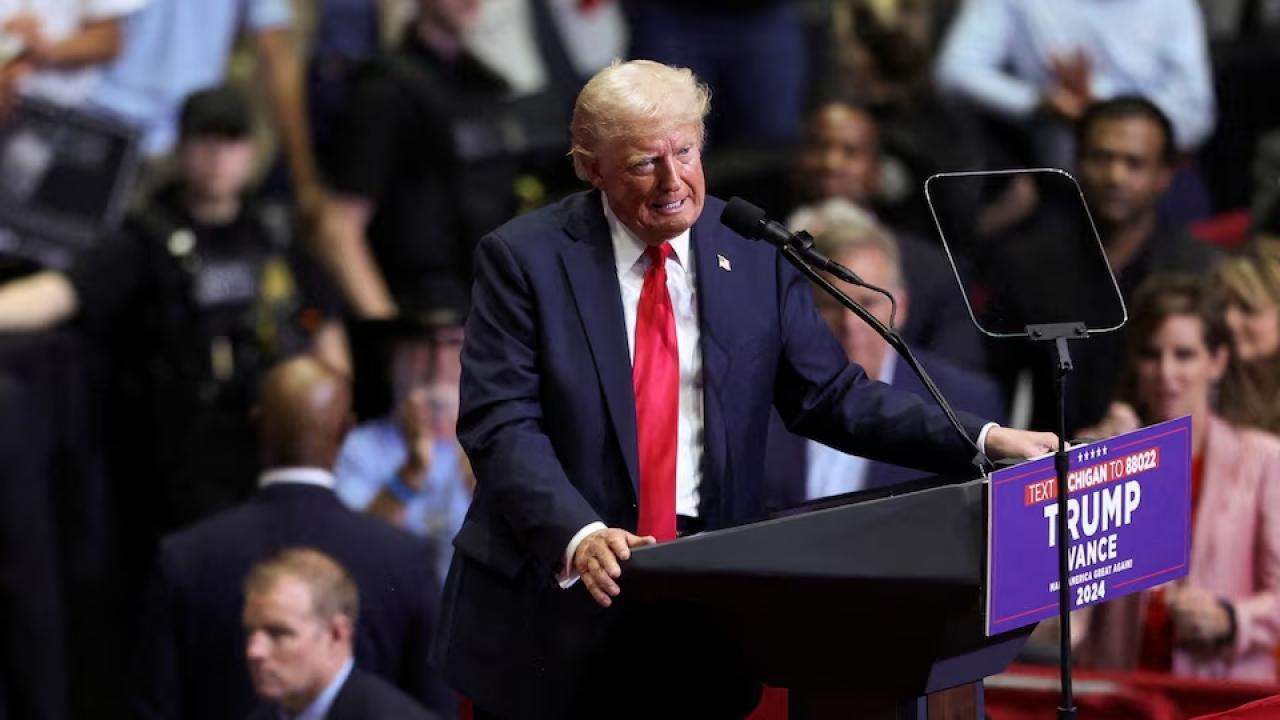
German experts tell DW that in Latin America it does not matter who the next US president is. The main topics of discussion are border control, organized crime and economic cooperation.
Latin America is watching closely what is happening in the United States. Republican Donald Trump will face the Democratic Party candidate, who is likely to be Vice President Kamala Harris, in the presidential election on November 5.
As in his first campaign and administration, Trump opposes migration from the south and threatens to close the borders.
Recently, the former president criticized the president of El Salvador, Nayib Bukele, by ensuring that the Central American country had successfully lowered its crime rates because it was "sending its murderers to the US."
SPEECHES AGAINST IMMIGRATION
Ingrid Wehr, director of the regional office for Central America of the German Heinrich Böll Foundation (HBS, linked to the Greens party), tells DW that Trump's speech against Central American migrants "is based on misinformation." and racist hatred.
This can "lead to the stigmatization of migrants as "criminals" and a wave of massive deportation, with a negative impact on thousands of Central American families, who depend on remittances from their relatives in the US," he adds.
WHAT DOES LATIN AMERICA EXPECT FROM TRUMP?
Wehr believes that a new Trump administration could pose a threat to regional democratic forces and also to the fight against climate change.
"It makes a significant difference if a populist, racist, ultra-conservative and anti-feminist like Trump, or a Democratic Party candidate, with the profile of Kamala Harris - if she is officially eligible - leads the next government."
"If Trump, a climate crisis denier, were to come to power, all the progress made in the Biden administration's climate agenda would be at stake," adds the expert.
In conversation with DW , Johannes Hügel, director of the Ecuador office of the German Konrad Adenauer foundation (KAS, for its acronym in German, linked to the Christian Democratic Union), maintains that it is difficult "to predict how Trump will act."
But given the growing Chinese influence in the region, it is possible that it seeks to ally or be more in tune with governments that have a more liberal ideology, such as Argentina or Ecuador, he suggests.
Due to drug trafficking and organized crime, "there would be greater interest on the part of the United States to interact with these countries and support security policies," he adds.
Despite Trump's words against migration, groups of Venezuelan migrants hope, for example, that Donald Trump wins the presidency, "because Republicans condemn the Maduro regime," he explains.
BORDER WITH MEXICO
Thousands of people are trying to cross irregularly into the US across the border with Mexico. For his part, Florian Huber, director of the Mexico and Caribbean office of the HBS, assures DW that "without a doubt, the issues surrounding migration, security, drug policy and economic relations will be closely interrelated in the management of bilateral relations" between both countries.
Huber states that "although Trump and Mexican President AMLO called each other 'friends,'" the relationship between both nations was strained "due to the immigration crisis, the arrival of drugs, such as dangerous fentanyl, from Mexico, and the increase in Chinese investments in the country.
"The relationship of the future president of Mexico, Claudia Sheinbaum, with Trump could be even more complicated," predicts the expert.
IS THERE FAITH IN HARRIS, IN LATIN AMERICA?
However, Kamala Harris is not safe from criticism either. The possible Democratic candidate has also been strongly questioned by Republicans, who accuse her of allowing "illegal" access of immigrants to the United States and aggravating the immigration and drug trafficking crisis on the border with Mexico.
"In Central America, miracles are not expected from a Kamala Harris administration - if she wins the nomination process - in terms of improvements in the situation of migrants" in Latin America, says Wehr, from HBS in Central America.
Meanwhile, Huber, from the HBS of Mexico and the Caribbean, points out that "with the victory of Kamala Harris, relations in economic and investment terms could be less tense. But the migration crisis will continue to be a challenge that will not have a solution easy".









